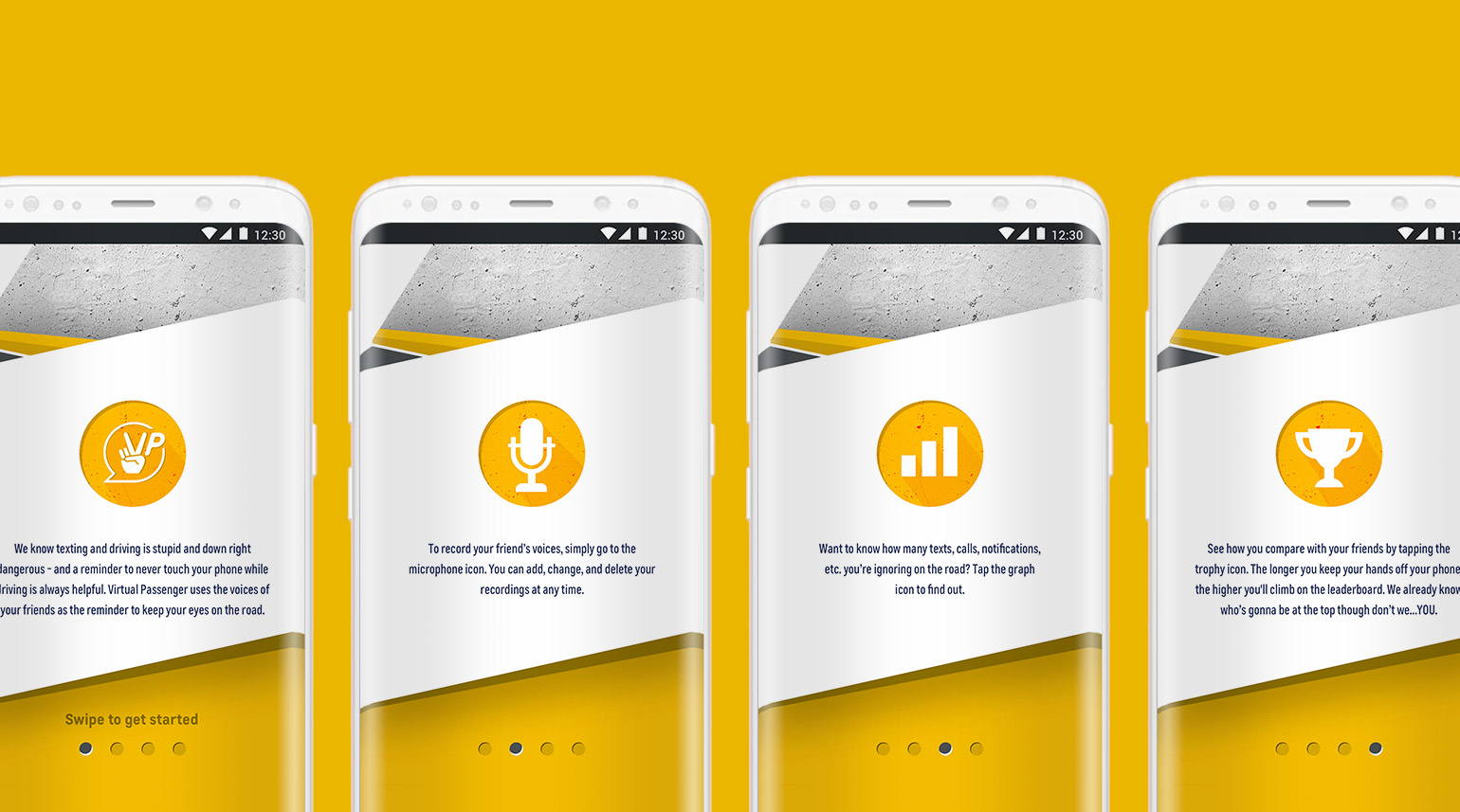
A mobile app to curb distracted driving with Chevrolet
Chevrolet, a symbol of American innovation, took a bold step toward addressing distracted driving on International Children’s Day. Hosting the Chevrolet Hack Lab, they challenged an international team of teens to design impactful solutions for safer roads. The winning idea? Harnessing “positive peer pressure” to combat distractions behind the wheel. Majestyk partnered with Chevy’s agency of record to turn this inventive concept into a tangible, life-saving product.
Outcomes
Behavior-Driven App Design
We created an app that leverages personal connections to combat distracted driving. By turning heartfelt reminders from friends and family into real-time interventions, we made road safety personal and effective.
Inclusive User Experiences
Our design addressed diverse scenarios, from passenger use to speed variability. Thoughtful fail-safes ensured the app worked seamlessly in real-world situations, making it practical for everyone.
Proven Real-World Impact
The app’s success was measurable, with over 10,000 downloads and glowing reviews. Our thoughtful approach proved that great design and development can create lasting, meaningful change.
Personalized Interventions on the Go
The "Call Me Out" app taps into the power of personal connection, letting users pre-record audio messages from loved ones. When a driver attempts to use their phone while the app detects the vehicle is in motion, these heartfelt reminders kick in. Whether it’s a stern word from mom or a playful jab from a best friend, the app uses familiarity to curb distracted driving and keep focus where it belongs—on the road.


Accommodating Real-World Scenarios
To ensure the app worked seamlessly for every user, our UX team tackled a variety of scenarios — from passengers in moving vehicles to nuanced speed thresholds. By designing layered fail-safes within both the interface and backend, we ensured a smooth, error-free experience. These safeguards guaranteed functionality without compromising user trust or convenience.


Fresh, Fun, and Familiar
The user interface and branding were designed to visually reinforce peer-to-peer communication for a younger demographic. The brand wanted to leverage one of the most recognizable hand gestures for its main icon. Our collaborative goal was to design something that felt like Chevrolet but not TOO much like Chevrolet. We utilized Chevrolet’s core elements and innovatively applied them across creative for a flexible but cohesive experience.


Accommodating Real-World Scenarios
To ensure the app worked seamlessly for every user, our UX team tackled a variety of scenarios — from passengers in moving vehicles to nuanced speed thresholds. By designing layered fail-safes within both the interface and backend, we ensured a smooth, error-free experience. These safeguards guaranteed functionality without compromising user trust or convenience.




A Hit on the Road
Following rigorous testing with Chevy and Wayne State University, "Call Me Out" launched to enthusiastic reviews in late 2018. With its unique approach and engaging features, the app has surpassed 10,000 downloads, proving that a thoughtful mix of tech, psychology, and design can make a tangible impact on road safety.
In The News

'Hey, Dad! Put your phone down!' New Chevy app fights distracted driving
Chevrolet launches a new smartphone app, Call Me Out, to help remind drivers to keep their hands off their phones and eyes on the road through audible messages from friends and family.


General Motors’ Call Me Out app to help stop distracted drivers
General Motors has sponsored the launch of an app called Call Me Out that aims to stop drivers from picking up their phone while driving.

Designing Solutions That drive Results
Behind every successful product is a deep understanding of how real people think and behave. Our UX team tackled the complexities of distracted driving with precision, creating fail-safes and intuitive designs that addressed diverse use cases and a seamless experience that works in the real world. Need to transform big ideas into thoughtful solutions? Let’s talk about how we can make it happen.



